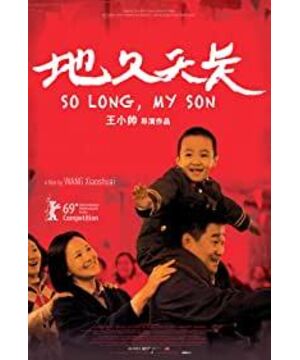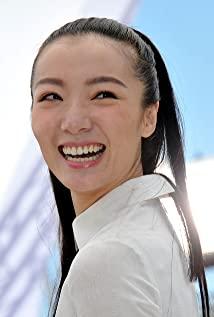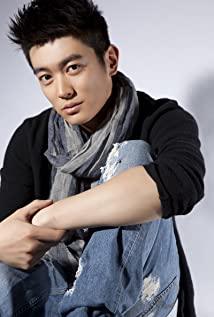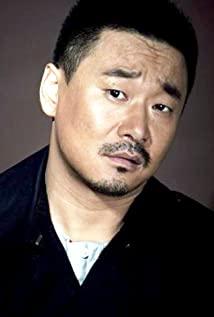It is said that this is an epic film of 30 years in modern China, which integrates several major events in modern times: family planning, the wave of laid-offs, and the market economy.
But when you look at it, you will feel that it is different from the "epic" in the Western concept.
In Western literature and music, "sadness" is often accompanied by "strong", just like Beethoven's symphonies, no matter how ill fate, individual people have dissatisfaction and resistance to fate, and the power of life is Contained in that unyielding struggle.
But China often only has "sad" but not "strong". Just like this movie, Yaojun and Liyun are completely victims of the times. Because of the one-child policy, the second child was "stillborn"; because abortion was rated as advanced, they could only be laid off first; After being taken away, I can only adopt the child, giving myself the last bit of motivation and hope for life; after the adopted child also left, life is completely reduced to living for the other party, and lifeless. But after being devastated for half their lives, they finally chose to reconcile.
In this half-life, there are only a handful of struggles against fate. When Haiyan was about to take Liyun to have an abortion, Yaojun angrily stopped the people who drove to pick them up, but in the end, his fist could only fall on the wall, and soon, he reconciled and got in the car; Yaojun took the When he was playing games for Haohao with the controller, he heard that some people hid in the countryside to avoid family planning but were caught and had an abortion. He threw the controller angrily; when his adopted son was disobedient, Yaojun dragged him down to eat, right. He was furious, but then he reconciled, giving him his ID and some money.
Other than that, there is no powerful "resistance".
A life without "resistance" is just like a Tongzilou compound overgrown with weeds, without vitality. The film chose a slow-paced expression of restraint, and most of the lens language used was a fixed camera or a slow-moving method, which probably also wanted to convey this lifeless state.
Vitality and ego have long been completely stifled in that era of highly unified thinking.
The loss of self, coupled with the implementation of the one-child policy, has brought disaster to families who have lost children. But even if it was a disaster, Yaojun and Liyun restrained their emotions. After learning the news of the child's death, Li Yun lay on the bed without crying. She didn't turn around until she was alone in the room, sobbing silently. Such details are placed in the background of that era, very real.
But from the beginning to the end of the movie, neither Liyun nor Yaojun directly expressed their emotions to Haohao and his parents, who directly caused the death of their son. They chose to stay away, chose to leave, chose to go to the South, and tried to continue their lives.
But how does life go on?
The couple chose to adopt a "Liu Xing" and wanted to return to Hele as a family of three. But do they really love this boy named Zhou Yongfu? They didn't even give the child the original name. This child is just a substitute for the couple who miss their old son and try to restart their lives. From getting along, I did not see the couple trying to understand and talk to the child, but only gave orders, scolded, and rigidly educated. This is very "Chinese-style parenting": take the child down to eat, ask the child why he stole something, and tell the child "should go to school". But he never stood in the position of the child and explained "why" to him equally. What they care about is not whether the child is happy or not, not how to educate the child in a proper way, but to find some sustenance for their goalless and meaningless life.
The more people who have no self, the more they need to live for others.
But the child is not a fool, he can feel it.
When Yaojun said to Liyun, "Do you still expect him to give you retirement?", he gave the child his ID card and some money and let him go. Adoption of this child, for various purposes, but it seems that all purposes, the starting point is their own. Giving birth and raising children, in that era, was more like finding an outlet for the lost self and repressed life, and leaving a way out for one's old age. Therefore, the suppression of an era destroys not only a generation. The next generation also lives in this monstrous over-giving and over-expectation they call "love".
At the end of the movie, the child called, Yaojun called him "Boss Liu", and still regarded the child as a substitute for Liu Xing, but the child did not refute the title of "Boss Liu", and it seemed that he accepted this substitution. the identity of the product.
After Zhou Yongfu left home, the couple lived for each other. There is no life in their eyes, no smiles on their faces, they just work, cook, eat mechanically. The vitality of the husband and wife is drained, and the quality of personal life depends entirely on others. They live for their children, who are almost the entire source of anger and happiness in the family. Without children, I can only live for my lover.
After Liyun committed suicide by taking the poison, Yaojun carried her to the hospital, in the same posture as he held his son face to face, ran wildly, and went to the same hospital. In that sweaty anxiety, it was difficult to tell whether he was more worried about the person he was holding, or more worried that the last sustenance in his life would vanish. The more a person's ego is dissolved, the less he can accept the changes of those close to him.
At the end of the film, Zhou Yongfu called. The couple called their adopted son "Boss Liu" and smiled with relief. Their comfort in life can only come from others.
This is a tragedy of an era. The tragedy is not only that they were deprived of their children by family planning and their jobs were deprived of jobs by the wave of layoffs, but also that they were deprived of themselves when they were young and lost the ability to be happy by themselves. Their happiness, meaning of existence, reason to live, all come from others.
At the end of the movie, the two couples go to visit their son's grave. This scene is very long. The couple pulled weeds, burned incense, and finally sat by the tomb, looking at the larger cemetery down the mountain. Their selfless life, from the moment they lost Liu Xing, was destined to lead to tragedy. In this life, no matter how hard you try, you can't get out of this huge shadow.
Overall, the film has a good grasp of the lifeless atmosphere. After losing Liu Xing, there was almost no smile on the faces of the couple, Yaojun frowned all the time, and Liyun remained expressionless. The performances of Wang Jingchun and Yongmei are very believable.
Let’s talk about a few more obvious problems in the movie:
First, some of the lines are very unspoken. The most obvious one is when Haohao tells the truth to Yaojun and Liyun at the end of the film, the paragraph "a tree grows in his body", and the beginning of the film when he says, "… …I think……" . The unspoken lines make people a bit dramatic and feel like they are reading a script.
Second, Jasmine's line was arranged strangely. Although the film also explained that there was a little ambiguity between Jasmine and Yaojun in the factory that went beyond the relationship between master and apprentice, it still felt too abrupt to go to bed directly. Jasmine's psychological changes were explained very bluntly. Just because he admired Yaojun a little when he was in the factory, and felt guilty towards Yaojun and Liyun because of his brother and sister-in-law, did he derail Yaojun and hurt Liyun? And according to what she said, she wanted to give birth to a child for Liyun to take care of. This was obviously a deeper injury. Why did she think that she was atonement for her brother and sister-in-law? The logic of this clue is too unreasonable, and I don't think it has any special significance for the development of the plot and the character building, but it is more awkward.
Third, it would be better if Liyun and Yaojun received a call from Haohao at the mountaintop cemetery at the end. One side is the joy of the birth of a new life, and the other side is to visit the grave of the son who has passed away for a long time, which not only conforms to the overall tone of the film, but also has more room for imagination. It's a pity the movie went on and on. The happy ending at the end was too strong for the TV series. Moreover, Jasmine's embarrassing story line appeared again. Their adopted son also called. What a coincidence, it seems that all the problems that have been tangled for a lifetime are all solved at once. Forced reunion, but people feel unreal.
View more about So Long, My Son reviews










